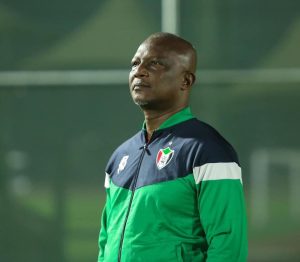Tinubu, the IMF and the Nigerian economy, by Rotimi Fasan
Nigeria’s wobbly economy appears to have humbled everyone. If they are to be taken seriously, not even the big men of the immediate past and the few others used to feeding off the sweat of the struggling majority are spared. Food prices are soaring even as the cost of energy increasingly spirals out of reach. A 50kg bag of rice now goes for N90, 000, while a kilogram of gas is N1,500. A few days ago, a former Minister of Aviation, Osita Chidoka, was apparently grieved after parting with N100, 000 to fill his car tank.
In the same week the often-down to earth Chidoka spoke, Rotimi Amaechi, two-time Transport Minister under the Buhari administration, also ranted about the state of the economy and the fact that Nigerian youths that his former principal, Muhammadu Buhari, characterised as lazy, had not taken to the street to vent their anger against the government. One wonders why Amaechi is not leading the charge, if he feels this strongly about the state of an economy that was brought to its knees by a government he was a prominent part of.
Before the two ministers, another freeloader of the Nigerian state, a beneficiary of oil pipeline protection contracts, Gani Adams, complained about spending an average of about N200, 000 to fuel a car on a trip to Ibadan. He needs at least a million naira, he said, to embark on such a trip as he normally travels in a convoy of vehicles. The question to ask Mr. Adams is: what does he need a convoy of vehicles for?
Yes, he is the Aare Onakakanfo but how does that give him the right to travel in a convoy of five or six vehicles? Isn’t this part of the wastage and ostentatious living his likes criticise about those presently in government that are demanding that Nigerians make sacrifices they are not willing to make? Like many of the others complaining and wondering why other Nigerians are not fighting on their behalf, his is a species of the self-inflicted pain of the Nigerian big man. Since he is determined to be a big man, he should bear the cost quietly.
The poor Nigerians unhappy about the high cost of petrol can’t even afford to go to work or commute commercially. Those who own cars have either cut down on their use or totally abandoned them. That’s how bad things have turned for most Nigerians who have never been in government and are thankful if they can feed but once a day. They don’t have the luxury of putting several cars on the road at the same time or blowing N100, 000 to fill, probably, a V-12 or V-24 engine vehicle at a go. Those are the people feeling the crunch of the economy and they cannot be in the same situation as the jet-set, over-pampered men and women who spend one Friday in London and the following evening in Dubai- people who, for political reasons, randomly throw hundreds of millions of naira at desperate flood victims in IDP camps.
Yet, in spite of all that Nigerans have had to endure in the last 18 months of the Bola Tinubu presidency, the news from the International Monetary Fund is that the screws have to be tightened even more. The IMF’s Vice President and Chief Economist, Mr. Indermit Gill, has called on Nigerians to cooperate with the reforms policies of Abuja. He is full of praise for Yemi Cardoso, the Central Bank Governor and has asked Nigerians to bear with President Bola Tinubu, probably two of the least admired (putting it rather mildly) people in Nigeria today. For Nigeria to go the way of Norway, Poland and Korea that have walked this path successfully, for these same reforms (removal of oil subsidy, floating of the currency that has resulted in the unification of the exchange rate), that have essentially immiserated Nigerians to have positive outcomes, we must be ready to endure them for the next one and a half decades- 15 long years!
Those are the words of Mr. Gill. To cushion the harsh effects of the reform policies, funds saved from the removal of oil subsidy and the floating of the naira, he recommends, should be channelled into productive sectors that can impact the vulnerable poor. For this IMF Czar, the Nigerian economy had its fastest growth during the reforms initiated between 2003 and 2007 when Olusegun Obasanjo was president and Ngozi Okonjo-Iweala, the WTO MD, was the Minister of Finance.
What this man is saying not only bears close resemblance to but is actually the twin sister of what Okonjo-Iweala had recommended during her keynote at the last NBA Conference. For those calling for the head of Tinubu while praising Okonjo-Iweala, as if she was preaching a new sermon then, I called their attention to the fact that what they were celebrating Okonjo-Iweala for has been given expression in Tinubu’s reform of the economy. But hate has blinded many to this fact and, even more dangerously, to what we all have to get the government to do before Nigerians are either annihilated or driven to desperate acts of civil disobedience before the promised benefits of the reforms manifest.
The fact is that neither Atiku Abubakar, Peter Obi or any of the other critical figures within and outside the ruling party, have proposed credible alternatives to the present policies they all promised to implement during the campaigns. Both Atiku and Obi may have reduced the plight of Nigerians to calling Tinubu names (T-Pain and what-not), the fact is that the effect of the reforms has been real and life-altering for most. As the IMF has advised, savings made from implementing the new policies should be put to good use for the benefit of the vulnerable. In this case, I’m repeating a previous point made here that the Federal Government should galvanise the states and local governments (that will be benefiting directly from the monthly allocation, beginning from November) to invest massively and immediately in agriculture.
It doesn’t take so long to cultivate and grow most of Nigeria’s staple food – cassava, rice, beans, yam, maize, millet and, indeed, the varieties of vegetables, tomatoes and peppers that we consume. Once the markets are flooded with food and the price of food is drastically reduced, the effect of high energy cost will be manageable. Simultaneously, governments across the three tiers can also invest in highly subsidised mass transportation. Put vehicles (even mini buses not luxury coaches that may take long to import) on the road in their thousands for both intra- and inter-state trips. These are far better options than transferring a few miserable and inflation-damaged thousands of naira into the accounts of pauperised workers.
The post Tinubu, the IMF and the Nigerian economy, by Rotimi Fasan appeared first on Vanguard News.



